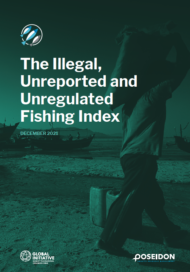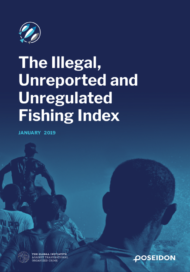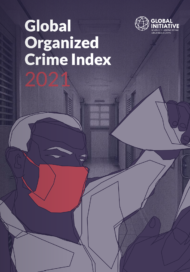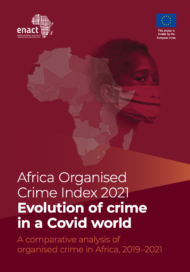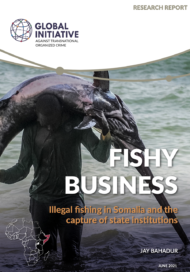Posted on 23 Dec 2021
The Global Initiative Against Transnational Organized Crime and Poseidon – Aquatic Resource Management Ltd. are pleased to announce the launch of the 2021 IUU Fishing Index update, a tool designed to provide a better understanding of illegal, unreported and unregulated (IUU) fishing worldwide.
The IUU Fishing Index was launched in early 2019 as a way of benchmarking and ranking countries for their vulnerability to, prevalence of and response to illegal, unreported and unregulated (IUU) fishing. The dedicated IUU Fishing Index website provides maps to visualize scores by indicator type and responsibility. Individual country profiles provide scores for each indicator for the country concerned and show how the country’s scores compare with the average scores for the region and the ocean basin(s) in which the country is located.
Since its launch the Index has been widely used by:
- Donors to inform the allocation of spending on projects to combat IUU fishing.
- Seafood buyers seeking to ensure their purchases of seafood are from legal sources.
- Trade agencies looking to incorporate the risk of fish from IUU sources entering national markets.
- Aquaculture certification standards as part of risk assessment of the origin of raw material being used in aquaculture feed.
- Countries and regional fisheries organizations in assessing IUU risk, benchmarking country performance and tracking change in indicators used in the Index.
- Academics as part of research projects and as a data source for publications focusing on fisheries sustainability and IUU fishing, but also on wider issues such as human trafficking and security threats where risks of IUU fishing may also increase risks in these other areas.
- Civil society in advocacy work to highlight and combat IUU fishing.
The usefulness of the Index to its users is enhanced when indicator scores remain up to date. The Index has therefore been updated in 2021. This report provides the results of the 2021 update, and the Index website also provides 2021 indicator scores. Both this report and the website allow for a comparison of scores and performance between the 2019 and 2021 datasets.
The global score across all state responsibilities and types of indicators is 2.24, down from 2.29 in 2019, representing a small improvement.
Individual country scores range from 3.86 for China (the worst) to 1.62 for both Estonia and Finland (the best). Ninety-three countries improved their scores between 2019 and 2021, two countries had the same score and 57 countries had a worse score. Countries with the largest improvements in their scores were Vietnam, Cambodia, Sudan, Cameroon and Sierra Leone. Those with the largest negative changes were Eritrea, South Korea, Mauritania, Costa Rica and Equatorial Guinea.
